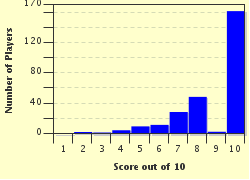Quiz Answer Key and Fun Facts
1. Rolling the dice against your opponent will determine who wins each battle as you try to conquer the world.
2. A dice roll moves your piece around the board, and depending on the colour of the space you land on, you have to answer one of six different categories of trivia to (maybe) earn a wedge.
3. You have 15 pieces to get into your house and then off the board, and you can only move your pieces along the points according to the numbers you roll on each die, individually. Also, your opponent is trying to do the same, in the opposite direction!
4. Rolling the dice in this game will either produce resources or activate the robber. Can you expand your territory and amass enough points to win before your opponents?
5. You need to roll a six or a one just to get started in this game, and then it is a race around the board against your colourful opponents (who keep getting in the way) to see who can get all their pieces into their home row first.
6. Rolling doubles too many times can earn you jail time in this game of properties and economics.
7. Climbing up or sliding down - roll the dice to see what your fate will be as you vie with your opponent to be the first to the top of the board.
8. The dice will help you move from room to room as you try to solve a murder mystery - who did it? - where did it happen? - what weapon was used?
9. A roll of the die is just the beginning in this game. Once you land on a coloured square, you then know what you need to draw for your team to guess.
10. A die is used in this game to randomly choose which word (of six on the card) everyone will use to make up a definition for. Hilarity typically ensues.
Source: Author
reedy
This quiz was reviewed by FunTrivia editor
WesleyCrusher before going online.
Any errors found in FunTrivia content are routinely corrected through our feedback system.

